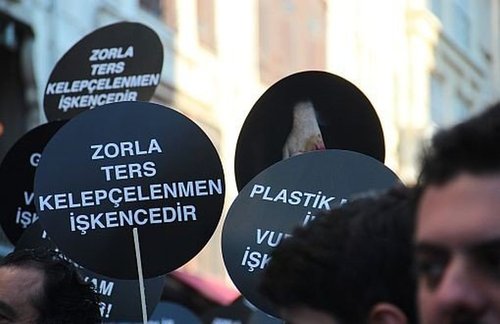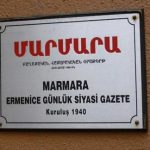Democracy and Progress (DEVA) Party Istanbul Deputy and Deputy Chairperson Mustafa Yeneroğlu brought the 2022 Treatment and Rehabilitation Centers Report of the Turkey Human Rights Foundation (TİHV) to the agenda of the Parliament.
In their motions, Yeneroğlu stated that there was a 22 percent increase in applications to the TİHV in 2022 compared to the previous year and that the youngest applicant was 3 years old. Yeneroğlu mentioned that it is noted that the second-highest number of applications was reached after the highest number of applications in 2001 in the history of TİHV. According to the report, 497 people were kept in reverse handcuffs, 80 people were subjected to physical sexual harassment, and 3 people were raped. It was determined that 43.5 percent of the applicants had been subjected to sexual torture.
The right to life of sick prisoners
Yeneroğlu also stated that in dozens of applications made to him, it was stated that the imprisonment status of those sentenced to ten years or more under the scope of “terrorism crimes” was arbitrarily continued.
The MP drew attention to the fact that, although the official number of patients was not announced, it is known that there are deaths in prisons and that the right to life of sick prisoners is under threat for whom there is a “can stay in prison” report from the Forensic Medicine Institute.
According to the latest report of the Human Rights Association (İHD), there are currently a total of 1,517 sick prisoners in Turkish prisons, including 651 seriously ill ones. In 2022, at least 81 prisoners died in prisons.
Yeneroğlu submitted a parliamentary question to Minister of the Interior Ali Yerlikaya and Minister of Justice Yılmaz Tunç regarding the increase in torture allegations.
What happened to the torture complaints?
He addressed the following questions to Minister Tunç:
* What efforts have been made by your Ministry regarding systematic and widespread allegations of torture and ill-treatment within the scope of serious human rights violations in our country?
* Are there any criminal investigations against journalists who have brought files related to torture to the public? If so, how many journalists have been prosecuted for what crimes? How many of these have turned into public prosecutions and cases?
* How many complaints have been referred to the Republic Chief Public Prosecutor’s Offices regarding torture and ill-treatment incidents in penitentiary institutions? What is the fate of these complaints?
* What are the official figures for the number of inmates who died in penitentiary institutions in 2020, 2021, 2022, and 2023? What are the causes of deaths in penitentiary institutions, within the scope of violation of the right to life?
* Are there any suspicious deaths? If so, have any investigations been initiated into these suspicious deaths? If so, what is the result of these investigations?
* How many sick prisoners have died in penitentiary institutions in 2020, 2021, 2022, and 2023 according to official figures? How many sick prisoners, despite having a life-threatening condition, are still serving their sentences in penitentiary institutions due to the assessment of “posing a serious and concrete danger to public safety”? What measures are taken for elderly and sick prisoners in penitentiary institutions?
* Despite more than a year passing since the promises made in the Human Rights Action Plan that “the scope of special execution methods will be expanded, and opportunities for convicts who are seriously ill, elderly, or disabled to serve their sentences at home will be increased” and “The scope of implementation regarding the execution of sentences under supervised release measures will be expanded for convicts who cannot sustain their lives in penitentiary institutions due to disability, illness, or old age,” why have these promises not been fulfilled?
* How many inmates who have the right to it have not benefited from supervised release after the evaluations made by the administration and observation boards in the context of good conduct assessment,? Why do these boards prepare negative reports, especially regarding inmates held in prisons for political crimes? Do these boards have a common evaluation criterion? Has your Ministry conducted any work to address the grievances caused by these boards to date? (AS/PE)
Source:Bianet



